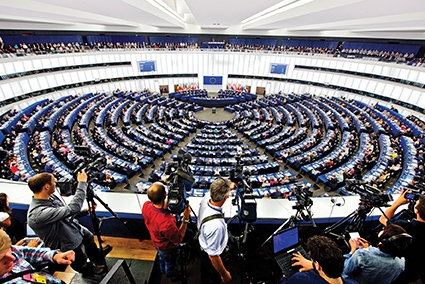The More the Merrier
OPED
If you hate a political party or a person associated with that particular political power, would you feel frustrated and angry if that person – a compatriot of yours at the same time – achieves significant international success? The answer would probably be both Yes and No. Yes, because the person is of your own blood and No, because you hate his political past. After all, what reason might be sufficient enough to enjoy the triumph of your vested enemy, and to congratulate him with the achieved success, no matter how valuable his victory might be to your mutual motherland?
I am talking about a longstanding Georgian parliamentarian, who, in addition to membership of the local parliament, has been functioning, in the last couple of years, as one of the vice-presidents of the Parliamentary Assembly of the Organization for Security and Co-operation in Europe. He was nominated by the European People’s Party to run for president of the Assembly, but the ruling party of Georgia had a problem with his candidature because he represented the opposition party in Georgia which was severely defeated in parliamentary elections four years ago and had been charged with faults and failures in handling of human rights issues in the country. This was a purely political struggle, and one could not expect the ruling party to gladly hold up the opposition party’s outstanding accomplishment.
Consequently, the ruling party put in black-and-white its negative attitude towards electing the nominated candidate, and addressed it to the Assembly, hoping that the Assembly would consider their opinion. The logic of political struggle totally justified this act of denial. The grudge was obvious but understandable. Apparently, if the man was voted into the OSCE parliamentary President’s Office, the ruling party would feel the bitterness of defeat on the level of European politics, not just in the national realm.
The question was raised as to whether electing a Georgian politician to a high European office was good for Georgia or not, or in fact made no difference at all. Here, the sentiments and political reasoning were mixed. Some thought that he deserved the post; others said he should never be allowed to be elected. No politician in the world is liked by their entire country of origin. Politicians are loved and hated, and they are often rebuked for not being good enough for the good of the nation. Part of the nation accepts the politician as a positive power and another part takes him as a negative force. The final decision is in the people’s hands, but none of those politicians should be discarded as they can all serve as an asset to the country’s aggregate political power, each of them having their share of fifteen minutes of fame and action. So if the nominated Georgian choice did no specific harm to Georgia, then having him up there might be considered as something agreeable.
The decision was made on July 7, 2016. In the end, the Georgian candidate was not elected president of the Assembly. As a result, the ruling party relaxed and felt saved from the inconvenience of a certain embarrassing nature. In generic terms, let’s say, this was not very good for Georgia!
Personally, I would be proud to see my fellow countryman – associate or adversary – somewhere in a politically conspicuous place, because time will pass and the history of Georgia will keep that person’s name as a considerable piece of memory and a subject of national pride. History might also remember, to a certain extent, the struggle between the parties of a definite period, but the selfsame history will keep for good the name of that particular Georgian who managed to let the world know one more Georgian name. After all, there are not so many! And most of them are remembered as political monsters, with some exceptions of course. To count the famous Georgian names that have influenced the world we might not even need all five fingers on our right hand. Frankly, the more, the merrier, right?
Nugzar B. Ruhadze












